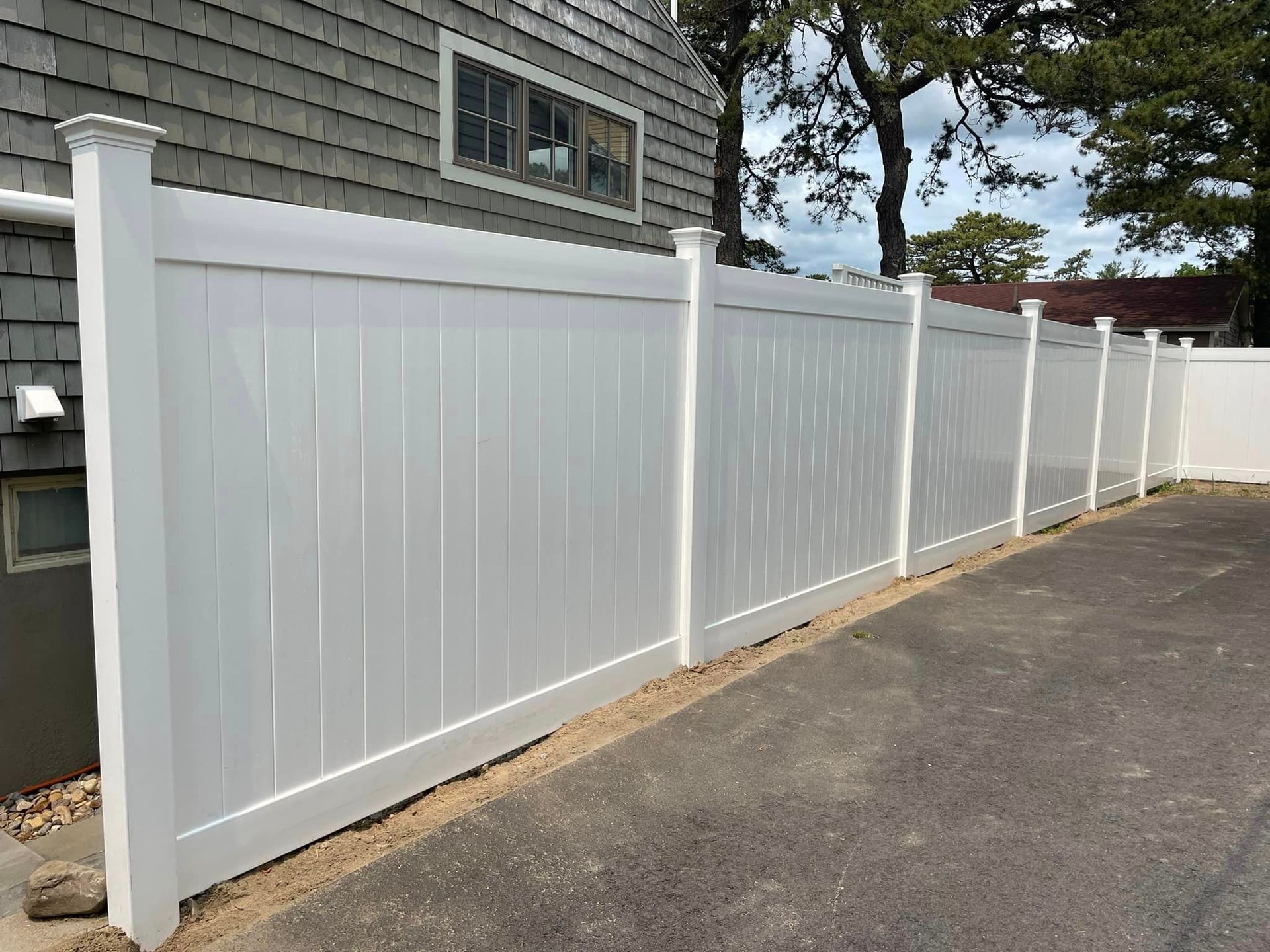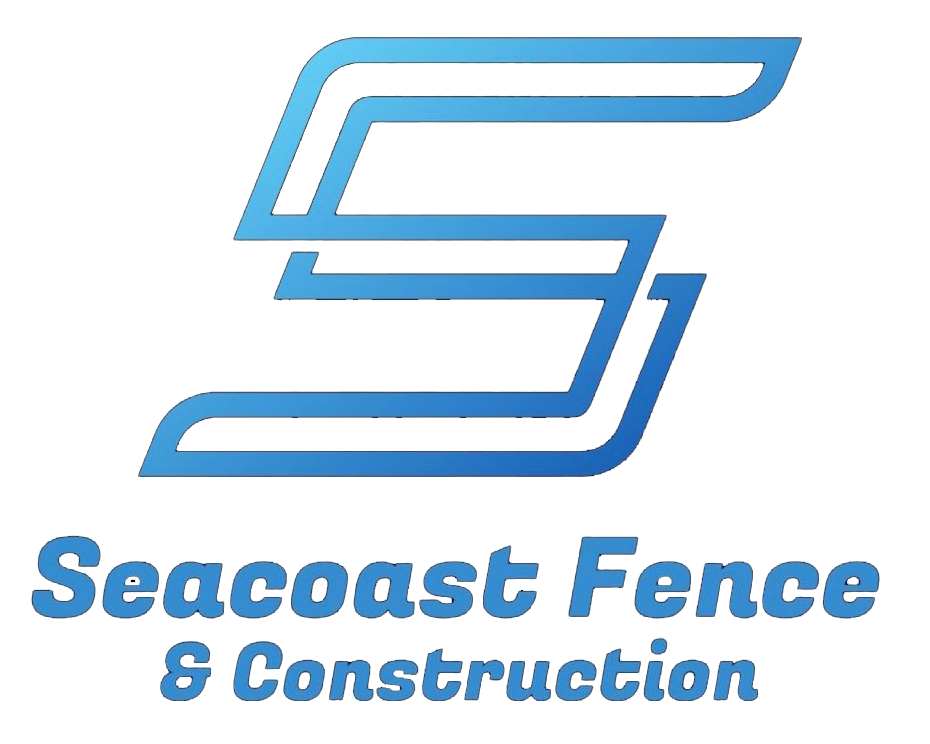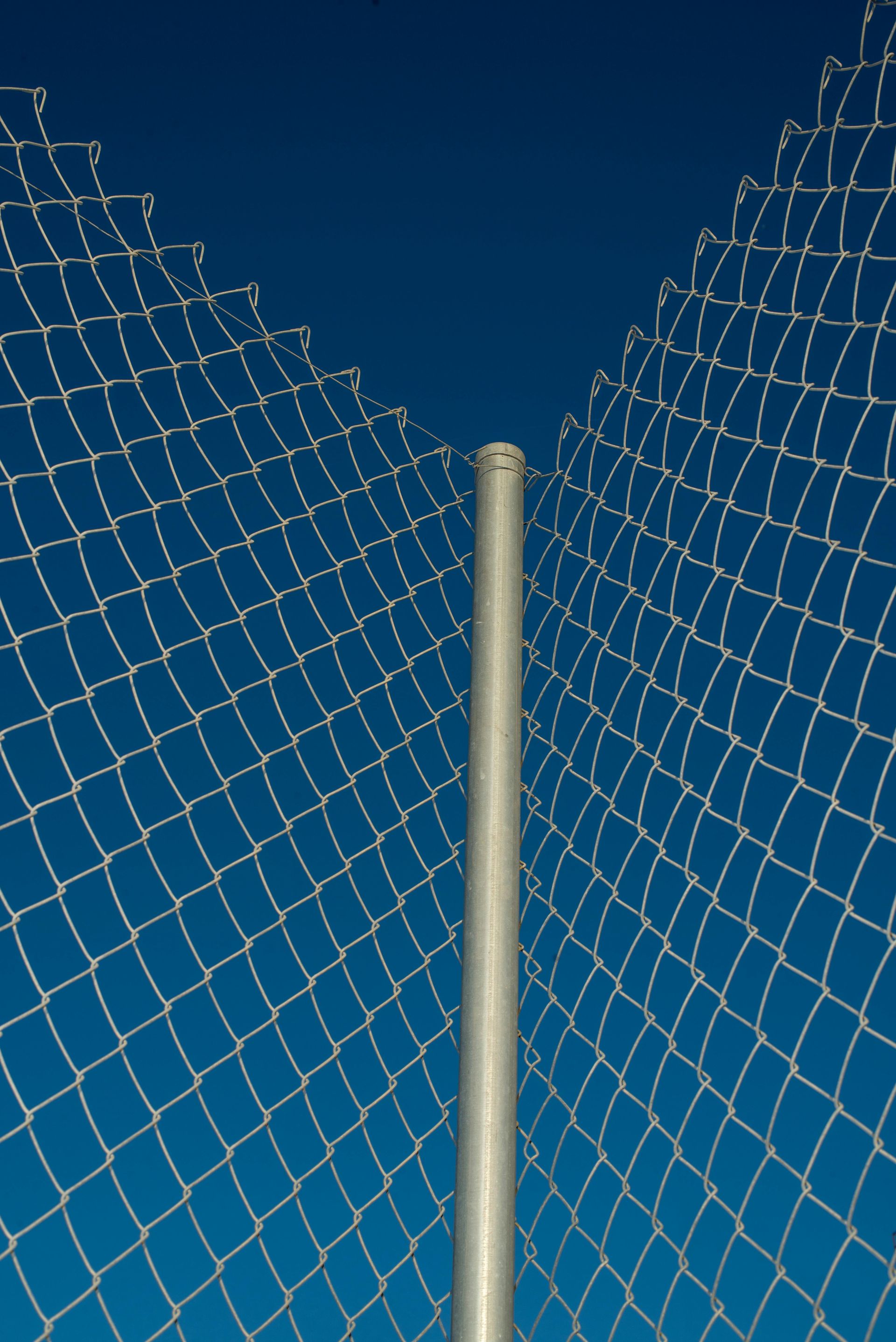Call Us: (207)-415-0219
What’s the Best Type of Fence for Your Property in Biddeford, ME?

Choosing the Right Fence for Your Needs
A fence isn’t just about marking your property. It adds privacy, boosts curb appeal, and keeps kids and pets safe. But not all fences are built the same, and choosing the right one depends on what you need most. Some fences offer security, while others are built to withstand harsh weather.
If you're wondering what type of fence is best for your property in Biddeford, ME, the best option depends on your priorities—wood for privacy, vinyl for low maintenance, metal for security, and chain-link for affordability. Each material has its pros and cons, and finding the right one means balancing cost, upkeep, and durability.
In this guide, we’ll break down the best fencing options, their benefits, and which one fits your needs best. Whether you're upgrading your yard or securing your property, this article will help you make the right choice.
What’s Your Primary Goal for a Fence? (Guided Decision-Making)
Before choosing a fence, think about what you need most. Are you looking for privacy? Security? Low maintenance? The right fence depends on your priorities.
I want privacy
Best options: Wood, Vinyl, Composite. These fences block views and create a private space in your yard.
I need security
Best options: Metal, Composite, Chain-link with privacy slats. Strong and durable, these fences keep intruders out.
I want low maintenance
Best options: Vinyl, Composite, Aluminum. These materials don’t rot, rust, or need painting.
I’m on a budget
Best options: Chain-link, Wood (pressure-treated pine). Affordable and functional without breaking the bank.
I have a large property
Best options: Farm & Ranch, Chain-link. These fences cover a lot of ground without costing too much.
I want a stylish fence
Best options: Wrought Iron, Wood, Composite. These fences add character and boost curb appeal.
The Best Types of Fences for Biddeford, ME (Pros & Cons)
Now that you know what you need in a fence, let’s look at the best materials. Each type has its own benefits, drawbacks, and maintenance needs.
Wood Fences (Traditional & Customizable)
Wood fences are a popular choice for homeowners who want privacy and a natural look. They can be customized with different heights, styles, and stains to match your home.
Pros:
- Provides excellent privacy
- Classic and customizable
- Can be stained or painted for a fresh look
Cons:
- Requires regular maintenance (staining, sealing)
- Can rot or warp over time, especially in humid areas
- More expensive than some other materials
Best for: Homeowners who want a classic, private fence and are willing to maintain it.
Vinyl Fences (Low Maintenance & Durable)
Vinyl fences are a great alternative to wood if you want the same look without the upkeep. They resist moisture, rot, and pests, making them a strong option for Biddeford’s coastal climate.
Pros:
- Doesn’t require painting or staining
- Resists rot, moisture, and insects
- Long lifespan with minimal upkeep
Cons:
- Higher upfront cost
- Limited color options compared to wood
- Can crack in extreme cold temperatures
Best for: Homeowners who want a durable, low-maintenance fence with a clean, modern look.
Metal Fences (Strong & Secure)
Metal fences, including wrought iron, aluminum, and steel, provide excellent security and durability. They are commonly used for decorative purposes or to protect properties.
Pros:
- Long-lasting and strong
- Great for security without blocking visibility
- Low maintenance, especially aluminum
Cons:
- Less privacy unless combined with plants or panels
- Wrought iron requires occasional rust protection
- Higher installation cost than chain-link or wood
Best for: Homeowners looking for security, durability, and a stylish touch.
Composite Fences (Long-Lasting & Eco-Friendly)
Composite fences are made from recycled wood and plastic, offering the look of wood with less maintenance. They are a strong choice for homeowners who want longevity without the hassle of upkeep.
Pros:
- Resistant to rot, moisture, and pests
- Looks like wood but lasts much longer
- Doesn’t need staining or sealing
Cons:
- More expensive than wood and vinyl
- Limited style and color options
- Can fade slightly over time
Best for: Those who want the durability of vinyl with the appearance of wood.
Chain-Link Fences (Affordable & Functional)
Chain-link fences are a cost-effective option for securing a property without obstructing views. They are often used for backyards, commercial properties, and pet enclosures.
Pros:
- Affordable and easy to install
- Low maintenance and long-lasting
- Can be combined with privacy slats for more coverage
Cons:
- Offers little privacy on its own
- Not the most attractive option
- Can rust over time if not coated properly
Best for: Budget-conscious homeowners, pet owners, and businesses needing a secure perimeter.
Farm & Ranch Fencing (Best for Large Properties)
Farm and ranch fencing, such as split rail or post-and-wire, is ideal for large areas. It defines property lines and keeps livestock contained while maintaining an open feel.
Pros:
- Covers large areas at a lower cost
- Blends well with rural and natural landscapes
- Easy to maintain compared to solid fencing
Cons:
- Provides little privacy
- Less security compared to solid fences
- May require occasional repairs due to weather or wear
Best for: Large property owners, farms, and homeowners who want a simple boundary fence.
Choosing the right material depends on your needs, budget, and how much maintenance you’re willing to do.
Climate & Maintenance Considerations in Biddeford, ME
Maine’s coastal weather can be tough on fences. The mix of humid summers, snowy winters, and salty air near the coast means you need a fence that can handle it all. Some materials hold up better than others, so it's important to choose wisely.
How Maine’s Weather Affects Your Fence
- Moisture & Humidity: Wood can absorb moisture, leading to rot, warping, and mold. Vinyl, composite, and aluminum resist moisture better.
- Cold & Snow: Extreme cold can cause some materials, like vinyl, to crack. Heavy snowfall can put pressure on weaker fences.
- Salt Air & Corrosion: If you live near the coast, salt in the air can speed up rust on metal fences. Aluminum is the best metal choice because it doesn’t rust.
- Wind & Storms: Strong winds can damage lightweight fences. Solid wood or composite panels provide more wind resistance, but metal fences allow wind to pass through.
Best Weather-Resistant Fence Materials
If you want a fence that lasts in Biddeford’s climate, these options work best:
- Vinyl: Resists moisture, rot, and pests but can become brittle in extreme cold.
- Composite: Handles moisture well, won’t rot, and lasts longer than wood.
- Aluminum: Won’t rust or corrode in salty air and is great for security.
- Pressure-Treated Wood: More resistant to rot and insects but still needs maintenance.
Fence Maintenance Tips for Long-Lasting Protection
- Wood: Stain or seal it every few years to prevent rot and fading.
- Vinyl & Composite: Wash with soap and water to remove dirt and mildew.
- Metal: Check for rust and apply a protective coating as needed.
- Chain-Link: Inspect for damage and replace any rusted sections.
Choosing the right material is only half the battle—proper maintenance will keep your fence looking great for years.
Cost vs. Value: What’s the Best Investment?
Fencing is an investment, and the right choice depends on your budget, how long you plan to stay in your home, and how much maintenance you’re willing to do. Some fences cost more upfront but save money in the long run because they last longer and require less upkeep.
Cost Comparison of Fence Types
Chain-link fences are the most affordable, typically ranging from $10 to $30 per linear foot. They last about 15 to 20 years with minimal maintenance. Wood fences cost more, averaging between $15 and $40 per linear foot, but they require regular staining or sealing and may only last 10 to 20 years.
Vinyl and composite fences are more expensive, ranging from $25 to $70 per linear foot, but they last 20 to 30 years with little maintenance. Aluminum fencing, priced between $30 and $80 per linear foot, offers excellent durability and won’t rust, making it one of the best long-term investments. Wrought iron is the most expensive, often costing $40 to $100 per linear foot, but it can last 50 years or more with proper care.
Longevity and Return on Investment
If you’re looking for the best long-term value, aluminum, composite, and vinyl are the top choices. These materials require little upkeep and have the longest lifespans. Chain-link is the most affordable option upfront and provides good durability, making it a practical choice for budget-conscious homeowners. Wood and wrought iron add character and curb appeal but need more maintenance over time.
When to Splurge vs. When to Save
Spending more on a fence makes sense if you want lasting privacy, security, or a high-end look. Investing in vinyl, aluminum, or composite can prevent costly repairs in the future. If you just need a simple property border or a temporary solution, chain-link or pressure-treated wood is the most cost-effective option.
Choosing the right balance between price and durability will ensure you get the most value out of your fence.
Professional Installation vs. DIY: What’s the Right Choice?
Once you’ve decided on the best fence for your property, the next big question is whether to install it yourself or hire a professional. While DIY installation may seem like a way to save money, there are important factors to consider before taking on the project.
Why Professional Installation is Worth It
Hiring a professional ensures the job is done right the first time. Fence installers have the experience to handle tricky landscapes, underground utilities, and local building codes. They also use the right tools and techniques to ensure your fence is sturdy and long-lasting.
A professionally installed fence is more likely to withstand harsh weather and everyday wear. If you choose wood, vinyl, or composite, proper post placement and alignment are crucial for durability. Metal fences need precise installation to prevent sagging or rusting over time.
Common DIY Mistakes That Can Cost More in the Long Run
Many homeowners try to install a fence themselves to cut costs, but mistakes can lead to expensive repairs later. Common DIY errors include:
- Incorrect post placement – If posts aren’t set deep enough, the fence may lean or collapse.
- Ignoring property lines – Installing a fence in the wrong spot can lead to disputes with neighbors.
- Skipping permits and codes – Many towns, including Biddeford, have rules on fence height, materials, and placement. Violations can result in fines or forced removal.
- Using the wrong materials – Not all wood and metal types are treated for outdoor durability. Choosing the wrong material can lead to premature rot or rust.
When DIY Might Be a Good Option
If you’re installing a simple fence on flat land and have the right tools, DIY could be a cost-effective option. Chain-link and post-and-rail fences are easier to install compared to wood or vinyl privacy fences. However, if the fence needs to last for years with minimal issues, hiring a professional is the best investment.
A well-installed fence adds value to your home and provides security and privacy for years. The last step is finding a reliable fence company to handle the job.
Get a Free Quote for Fence Installation in Biddeford, ME
The right fence adds privacy, security, and value to your property, but proper installation is just as important as choosing the right material. A poorly installed fence won’t last, especially in Maine’s tough climate. That’s why working with a trusted professional is the best way to ensure your fence is built to last.
For expert fence installation in Biddeford, ME, Seacoast Fence and Construction is the name to trust. With years of experience and a commitment to quality, they provide durable, weather-resistant fencing solutions tailored to your needs. Whether you’re looking for wood, vinyl, metal, or composite, their team ensures a smooth, hassle-free installation.
Get in touch with Seacoast Fence and Construction today for a free quote. Let the experts handle the hard work while you enjoy a beautiful, long-lasting fence that enhances your property for years to come.
Our Services
Contact Information
Phone:
Address:
642 Elm St Unit 3, Biddeford ME 4005
Business Hours
- Mon - Fri
- -
- Sat - Sun
- Closed
Tips & Articles


